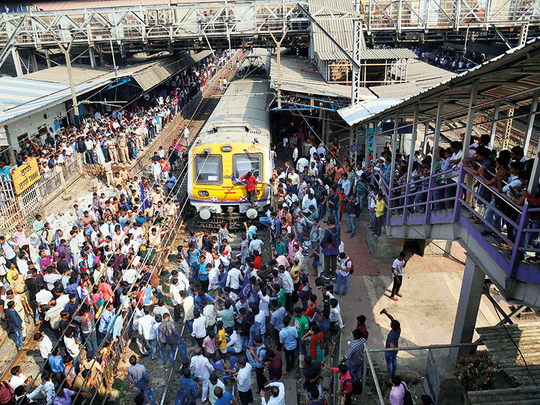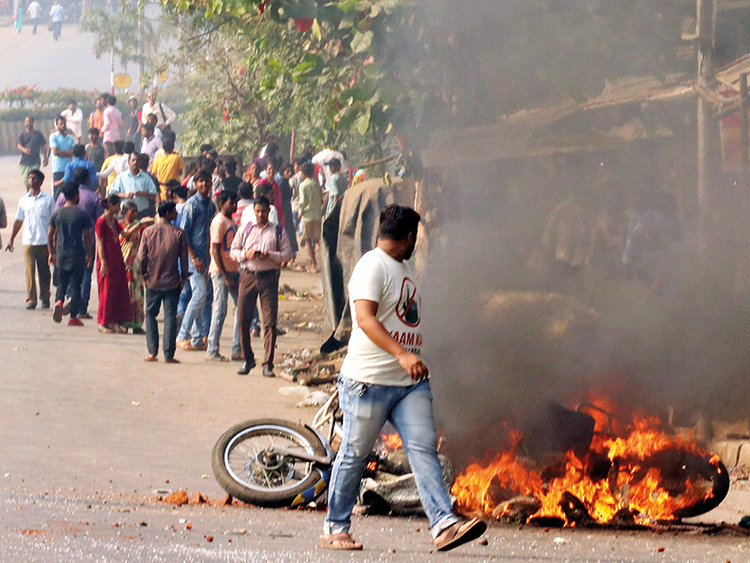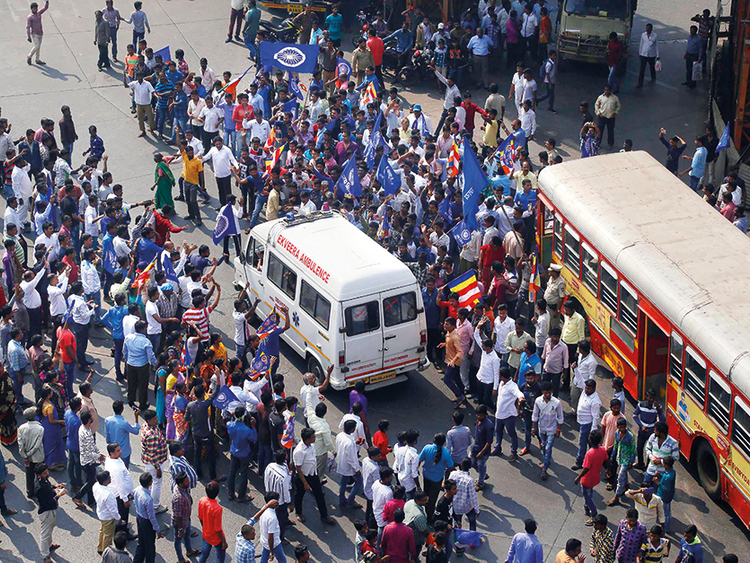
Mumbai: After announcing the shutdown of Mumbai and Maharashtra over the caste war on Tuesday, Dalit leader Prakash Ambedkar, grandson of Dr Babasaheb Ambedkar, the architect of India’s Constitution, called off the ‘bandh’ Wednesday evening at 5pm and thanked supporters for holding ‘peaceful’ protests across the state.
However, the shutdown severely affected normal life since transport services across the state were not allowed to operate. In Mumbai, city buses were attacked, suburban train services were stopped at several stations including Thane and Kanjurmarg where railway property was damaged. Most arterial roads in Mumbai were blocked with several residents preferring to stay home. Most schools and colleges remained shut or shut early with exams being postponed. Many stayed away offices and roads were mostly occupied by the agitators.
The worst-hit areas were Chembur, Govandi, Mankhurd, Dadar, Mahim, Parel, Bandra, Ghatkopar while several cities — Kolhapur, Auranbgabad, Nashik and Nagpur were also affected as the agitators resorted to stone pelting and damaging motorbikes, buses and other vehicles.
Chief Minister Devendra Fadnavis said, “Inquiry will be conducted in the incidents of violence that took place across Maharashtra. We are monitoring the CCTV footage of the violence.”
The spokesperson for Mumbai International Airport Ltd stated that flights were landing and taking off on time but passengers arriving at the airport were stranded. Many decided to stay on in the airport until the situation normalised. The crew of several airlines also reported late. Airport authorities tried to arrange the city’s BEST buses for passengers but had to stop.
The worst affected were those who needed to go to hospital or travel to railway and bus stations and the airport.
The caste clashes began after the 200th anniversary of a British battle, which had a large contingent of Mahars from the Dalit community, against the Peshwas (considered as upper castes) was being observed by thousands of Dalits on January 1, at Koregaon-Bhima near Pune. British erected a memorial which has 22 Mahar names. Ambedkar had visited the spot in 1927 and since then it has attracted a large number of Dalits to pay homage as well as observe a victory over the upper castes.
Story ‘spun by Britishers’
But this time, several right wing groups had camped in the area for some days, asking people not to commemorate the day. Dalits have pointed to two right wing men, Sambhaji Bhide and Milind Ekbote, as having incited the caste war. Mumbai Mirror reported, “This time, Bhide and Ekbote have ranged the Hindutva forces against the Dalits in the state. They achieved this by desecrating the samadhi of a Mahar named Govind Gaikwad who is credited with performing Shivaji Maharaj’s son Sambhajiraje Bhosale’s funeral when nobody else would touch the body as it could have invited the Mughals’ wrath.”
The two right wingers believe that this is a story spun by Britishers and that the last rites were performed by upper caste Marathas and that the government should conduct a study.
The paper reported, “The timing of their ransacking of the samadhi located in a village named Wadhu in Pune district was telling. They desecrated the samadhi on December 29 knowing fully well that thousands of Dalits would gather on January 1 at a nearby village called Bhima-Koregaon.” Soon clashes occurred and spread to Mumbai.
Prakash Ambedkar Wednesday said at a press conference that the two men should be tried under serious charges like Yakub Memon, who did not participate in the 1993 serial bomb blasts but knew of the conspiracy.
“People are extremely hurt at the communal tensions in the state where the contributions of the marginalised community towards nation building are being questioned today.”














